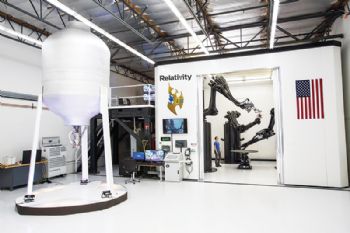
Relativity Space — a start-up bringing a new 3-D printed rocket to Cape Canaveral — has announced its first launch contract after signing a multi-mission deal with Canada-based Telesat, which is one of the world’s largest commercial satellite operators.
The launches aboard Relativity’s Terran 1 rocket will support Telesat’s planned ‘mega-constellation’ in low Earth orbit, providing a global Internet service with as many as 529 satellites.
Relativity’s (
www.relativityspace.com) privately funded Terran 1 is part of a new class of rockets focused on launching smaller satellites.
The company plans to develop a pad at Cape Canaveral’s Launch Complex 16, and it hopes to launch its first rocket in late 2020.
Relativity will invest $42 million in the facility and create 100 local jobs. Relativity says it is creating a factory of the future, capable of producing an entirely 3-D printed rocket using a proprietary building-size metal 3-D printer called Stargate.
CEO Tim Ellis said: “Stargate, which is the backbone to our vertically integrated factory, can go from raw material to flight in less than 60 days; and we can print a new rocket design just as quickly.
"Moreover, Stargate is constantly getting smarter and faster by using sensors and function-based learning.
"We are creating an entirely new type of evolvable production line.
"The complete printing of our rocket — Terran 1 — reduces the vehicle part count from nearly 100,000 to under 1,000 and is the first step towards an entirely autonomous factory.”
The Aeon rocket motor used in Terran 1 is also designed for automated manufacture and 3-D printing, having less than 100 components.